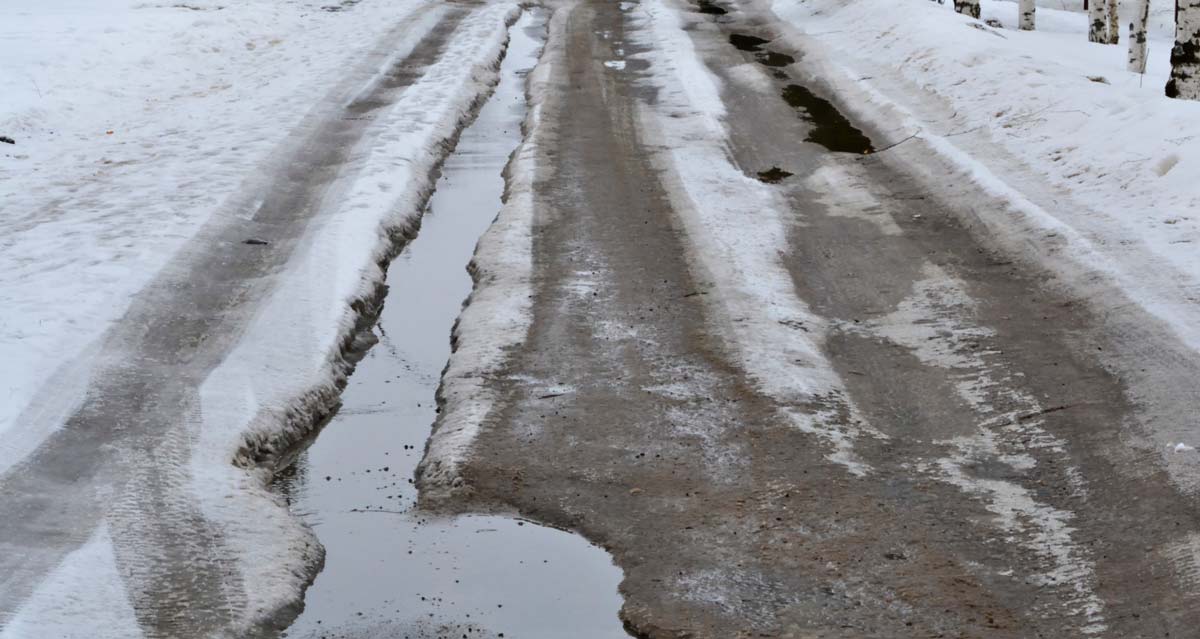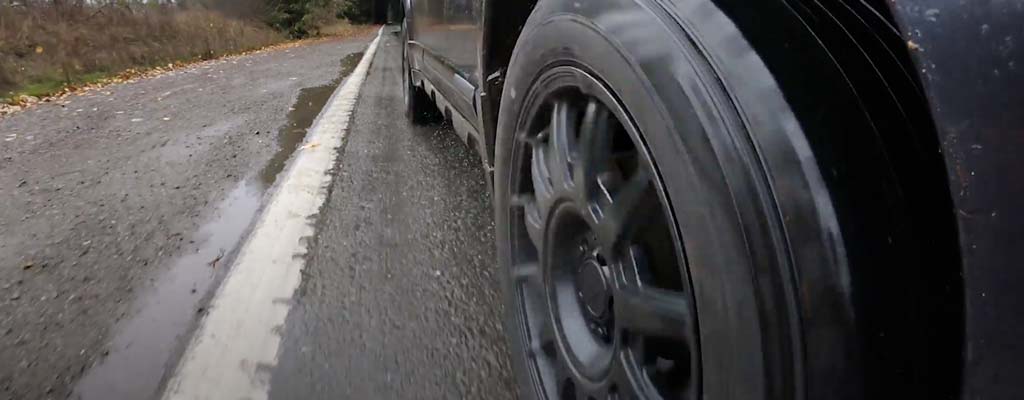When to Use & Change to Winter Tires
Driving in the West means being prepared for any kind of road conditions. Depending on the time of year and where you’re going, you could experience rain, sleet, snow, and sunshine — sometimes all on the same day. Owning a set of winter and summer (performance) or all-season tires is a smart way to plan for the best and worst road conditions. But when should you switch out your tires? We have some quick advice.
When to Use Winter Tires
Winter or snow tires use a special rubber that helps grip the road better than performance or all-season tires when temperatures drop below 40º F. That’s because that rubber compound stays flexible in freezing temperatures. Plus, the deep, wide, and jagged tread on snow tires, along with siping (small slits in the tread that provide gripping edges) helps maintain traction while channels move precipitation away from the tires. Here’s when it’s recommended that you change to winter tires:
- Based on the weather: It’s time to install your winter tires when nighttime and early morning temperatures stay at or near 40º F. Yes, it’s okay if daytime temperatures hover in the upper 50s. You won’t ruin your winter tires overnight, but they will wear out faster as temperatures rise.
- If you plan to drive on snow and ice: If you live in areas that get snow, often drive over mountain passes in the winter, or love to participate in winter sports (skiing, boarding, snowshoeing), consider changing to your snow tires ahead of the first snowstorm of the season.
Why Should You Get Winter Tires?
You should get a set of winter tires because they’re designed to add safety to your winter commute and family outings. Winter tires give you more control on snow and ice when compared to all-season tires thanks to larger grooves between tread blocks, the special rubber compound, and extra siping.

Some snow tires come with studs for even more traction. This can be especially useful on ice. All-weather tires are an additional option for year-round safety and performance that blends the benefits of all-season and winter tires. Learn how to choose the right snow tires for your needs. Then shop our winter tire collection.
Les Schwab Tip: You can skip the changeover fees when you have your Les Schwab winter and summer tires mounted to their own wheels.
Is It Too Early to Put on Winter Tires?
The pros at your local Les Schwab can tell you when to get your snow/winter tires installed for the season. But generally, once nighttime and early morning seasonal temperatures consistently stay at or below 40º F, and before the first snowfall of the season, it may be time to get into Les Schwab to get your tires changed out.
Les Schwab Tip: If your winter tires have studs, your state has specific, legal dates when you can use them on your vehicle. Find your state’s information here. Also, check out the differences between studded and studless tires.
How Long Do Snow Tires Last?
The life of a set of snow tires depends on the tire’s construction, how many miles they travel, the conditions they face, how much they are driven on bare pavement, and whether or not they are used consistently at or above temperatures of 50º F.

Should Winter Tires Be Used on an All-Wheel Drive Vehicle?
While AWD and 4x4 vehicles can help you maintain momentum in snow and ice, braking and cornering performance in these conditions relies on your tires rather than the type of vehicle. Therefore, it’s recommended, and sometimes required, that you have either winter tires or snow chains on your AWD if you’re driving in a blizzard or icy conditions.
When to Switch to All-Season or Summer Tires
As springtime weather warms up, it could be time to change out to your all-season or performance tires. We recommend swapping back when you do not plan to drive on snow or ice-covered roads, or as nighttime temperatures begin to consistently rise.
Rough Winter Roads Can Affect Your Alignment
Switching tires in the spring is a great time to have your alignment checked. That’s because ice ruts, potholes, and rough roads, as well as impacts with curbs and other unseen winter road debris can throw off your vehicle’s alignment. The pros at your local Les Schwab can give yours a free visual inspection. If we notice any issues, we’ll suggest a more comprehensive check.
Can You Drive on Winter Tires in the Summer?
Yes, you can use winter tires in the summer (as long as they are not studded), but it’s not a good idea for your wallet or your safety. The special rubber compound that makes them flexible in freezing temperatures will make them wear out much faster in warmer weather. Plus, the higher rolling resistance of the deeper tread means you’ll reduce your fuel efficiency (miles per gallon). And because winter tires are not designed for cornering and acceleration on hot roads, it could adversely affect the handling of your vehicle.
Learn about winter tires, as well as all-season and all-weather tires, and find the perfect options for anywhere you plan to go.
Let Les Schwab Handle Your Seasonal Changeover
Stop by your local Les Schwab. We have answers to all your questions about changing out to winter tires, all-season tires, and all-weather tires, including a premium selection of snow tires for any vehicle type, make, or model. Plus, our tire technicians understand the requirements of your local climate and road conditions. Need a place to store your seasonal tires? Some Les Schwab stores offer tire storage.
What you need to know

What Are Studded Tires & When Should You Use Them
Wondering what studded tires are and when the right time to use them on your vehicle is? Read this article to find out laws and information on studded tires.

How to Choose Winter Tires: Complete Buying Guide & FAQs
Learn how to choose the best winter tires for your vehicle with our guide. Get expert tips, understand tire differences, and explore top FAQs from Les Schwab.

Should You Drive on Winter Tires in the Summer?
Are you thinking of keeping those winter tires on year-round? Here are reasons why it isn’t safe or cost-efficient, especially in the summer.

